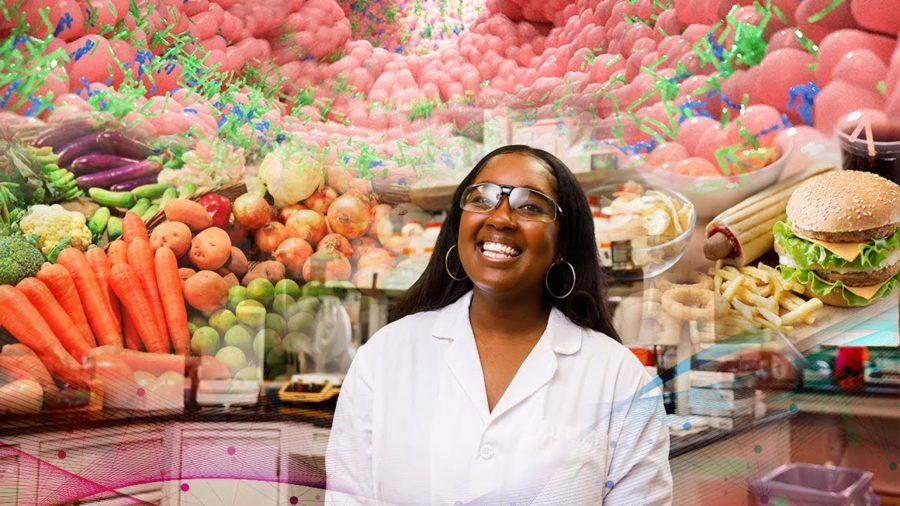Meli’sa Crawford: In my grandmother’s household, she would say that if we were having trouble pooping then we may be sick. This concept would intrigue me as a child. So you mean if I can’t poop then something’s wrong with me? Well, why poop? I didn’t know it at the time, but my grandmother was planting the first of many seeds used to help me develop into a future gastrointestinal researcher. Which also means that other people’s poop is a huge part of my life.
I grew up in South Phoenix, which was considered to be a food desert. While there were many grocery stores in the area, the quality of the food was disappointing. And many families, like my own, could only afford fast food. Needless was to say, I saw many family members and friends struggling with their health. Which made me wonder if a lack of a bowel movement were to blame.
Now my grandmother isn’t a scientist, but she was definitely on to something. Poop can tell us about our health. The gut microbiome is associated with many metabolic and gastrointestinal diseases, like obesity, Type 2 diabetes, and inflammatory bowel disease. 60 to 70 million people are affected by digestive disorders, and over 97 billion prescriptions are written annually to treat these debilitating illnesses. But a poor diet is the most important factor that can determine whether you get metabolic and gastrointestinal diseases.
In our lab, we examine how a high-fat diet can alter gut bacteria and what passes through the intestines. We found that a high-fat diet can increase bacteria associated with disease. And it can also increase inflammatory proteins. In most cases, increasing fiber intake through fruits and vegetables can improve gut health. So the majority of information that researchers and doctors use to help develop new treatments starts with knowing the composition of your poop. For example, you can donate your fecal samples to a nonprofit stool bank like OpenBiome. With that information, researchers can develop pills that contain healthy fecal microbes to treat patients who are suffering from GI disorders. My hope is that one day we can improve food quality and accessibility for underprivileged areas, so that one day we can eliminate disease risk.
